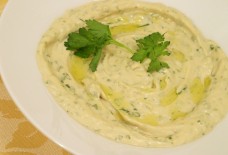Empowering Arab American Identity Through Theater
BY: Suzanne Manneh/Contributing Writer
Heather Raffo knew she wanted to “make theater her life,” as early as elementary school.
She eventually earned a Bachelor of Arts degree in Literature from the University of Michigan, but a “life changing” visit to Iraq in 1993 reignited her passion for theater, returning it to the forefront.
Raffo had been particularly interested in the experience of the Iraqi woman, and in 1998, while in graduate school, she wrote a solo show about it to perform. She had no other choice, she said, because “There were no Iraqi female protagonists in the English speaking theater.”
This eventually motivated her, she said, to write 9 Parts of Desire, a diverse portrait of nine Iraqi women, spanning the decades between the first and second Gulf Wars, and occupation. The play explores the significance of being a woman in a country immersed in war.
9 Parts of Desire premiered in August 2003 at the Traverse Theater, Edinburgh and is still on tour nationally, and internationally. The play, she noted, created “massive shifts” around the reception and portrayal of Arabs—particularly Iraqis— in the arts, recalling that a “6-foot Marine” was so moved, he cried in her arms after watching the performance.
“I’m 44,” she said, “so growing up, there was no such thing as ‘Arab American theater.’”
“To have successes like that for our community was really important,” she said. “We are now a genre.”
Changing the dialogue
Playwright Betty Shamieh, discussed the importance of showing, “Arab Americans as humans.”
“Much of Arab American art often highlights our plight as victims of violence. As much as we would want to express sorrow, I believe theater doesn’t change people’s minds. What it can do is humanize,” she said.
Similarly, Lameece Issaq, Artistic Director of New York-based Noor Theater noted that, “there is a perception problem, but we have an opportunity to change the dialogue.”
Issaq pointed to the growing number of Middle Eastern actors auditioning for stereotypical roles in film, television and theatre. They are in a “conundrum of ‘I want to work, but do I really want to portray this character?’”
She referenced her play Food and Fadwa, as one example of how Arab characters—otherwise absent from most theater, film, or television performances—can resonate with audiences on a human level.
The play, which she co-wrote with colleague Jacob Kader, is set near Bethlehem in the recent past and tells the story of Fadwa, an unmarried 30-something chef, who is caring for her aging father with Alzheimer’s and planning her younger sister’s wedding. Yet Fadwa and her family are largely homebound because of the ongoing violence, Israeli occupation, and subsequent, strict curfews enforced, which prevent her from obtaining her father’s vital medications at the time.
After a performance, Issaq said that a man approached her, nearly emotional, because of how significantly he identified with the story. He was caring for his aging mother who had Alzheimer’s, Isaaq said, and empathized with Fadwa.
“You just don’t know at what level you’ll reach a person,” Issaq said, and “that’s what it’s all about.”
Giving women a voice
Still, the dialogue must also be transformed as it relates to the depiction of Arab women, suggested Executive Director of Noor Theater, Maha Chehlaoui.
Chehlaoui pointed to the “Crying Arab Syndrome,” especially for Arab American actresses, who usually play the part of a sad or oppressed woman, in the event an Arab female role is even available, she explained.
“It’s not that Arab women don’t have a lot to cry about, we have plenty to cry about,” she said.
“But we must bring women forward. When we bring [Arab] women forward, we’re bringing everyone forward, in terms of social justice and even in the quality of entertainment,” she said.
Noor Theater will be featuring an upcoming piece from Raffo, titled What Happened to Noura, a play she facilitated the creation of in her workshop Places of Pilgrimage. It was “written by nine courageous women from Queens College, all Middle Eastern Americans.” Raffo then edited it, and taught them the workshop where it was created.
Raffo, who was awarded a three-year Doris Duke grant in 2013 to develop theater in New York City’s Arab American community, reflected on her work, largely with Arab female immigrants, representing various age groups and Arab countries.
Raffo said that she asks, “girls and women, of all ages, ‘do you feel represented?’ and they don’t,” she said.
“Women love that they are being asked what they feel and think, and [theater] is a safe and trusting place for them to freely speak,” she said.
“Theater is a space where voice matters, and all I want to do is give women a voice.”



